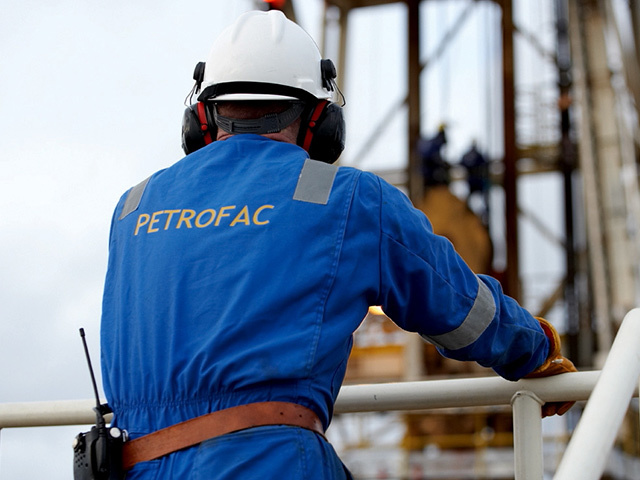
When a regulator or fraud-buster targets a company for investigation, a financial penalty is often around the corner. In the case of British oil services firm Petrofac, it’s the reputational risk that’s looking pricier than the potential fine.
Petrofac’s market value has withered by $1.8 billion, or just about half, since it said this month that it was under investigation by Britain’s Serious Fraud Office. The SFO is looking into its business with Monaco-based Unaoil, which is being probed in connection with bribery, corruption and money laundering.
Petrofac has suspended its chief operating officer, who was — — along with the CEO — arrested, questioned and released without charge as part of the investigation. The SFO says Petrofac hasn’t cooperated with its investigation. The firm is beefing up resources to handle the probe and says it is “committed” to cooperating.
The market wipe-out looks a lot more aggressive than any potential financial penalty, which could theoretically be somewhere between $400 million and $800 million, according to analyst estimates — at least if any wrongdoing is proved. This assumes a $2 billion value on business conducted with Unaoil at a $200 million profit, according to Barclays. An SFO penalty might well rise to up to four times this amount. While an $800 million fine isn’t peanuts for a company that earned $320 million in net profit last year, it wouldn’t be insurmountable.
Yet the potential for reputational damage can run deep.
Overhanging litigation and conduct issues can affect a company’s ability to win new business, deliver existing projects and secure financing. Construction consultancy Sweett Group, the first company to be convicted under new British bribery laws enacted in 2011, announced it was exiting the Middle East in 2015 as it pleaded guilty to paying bribes in the region. It blamed “challenging” trading conditions and a declining order book.
Jet-maker Airbus Group SE lost access to some backstop financing from credit agencies after the SFO opened a criminal investigation into allegations relating to some third-party consultants.
The SFO view of Petrofac as uncooperative may change in future, but it’s a blow to its efforts to tackle head-on the media allegations related to Unaoil. Petrofac had called in law firm Freshfields and KPMG in 2016 to carry out an independent inquiry. That found no evidence of bribe payments and no evidence that any company director knew about alleged misconduct, according to Petrofac , which forwarded its findings to the SFO.
“We’ve gone as far as we can,” CEO Ayman Asfari told analysts in August. But the SFO’s latest view suggests either it doesn’t agree with the inquiry findings or that it doesn’t think Petrofac’s ability to investigate itself is up to snuff. That’s hard for investors to ignore.
Petrofac is at least trying to cooperate and it does have options. Its bankers are still on hand: the firm said on Tuesday that its lenders had agreed to extend $1 billion out of a $1.2 billion revolving credit facility by one year, to 2021.
The balance sheet is in line with peers, with net debt roughly equal to its Ebitda at the end of 2016, according to Bloomberg Intelligence’s Will Hares. Cutting the dividend, which amounts to about $225 million per year, would save cash. Petrofac’s order backlog is about $14.3 billion, according to Barclays, so there’s some room to contain any reputational fallout.
All that said, the probe threatens to trigger a chain reaction. The COO’s suspension and litigation risk might hurt the underlying business. The firm’s compliance processes may be deemed inadequate by the SFO. Any fine would eat into $1.1 billion of equity on the balance sheet.
As the market reaction shows, a company’s reputation is a valuable thing.
Recommended for you
